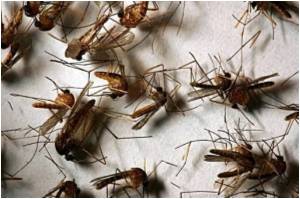A group of insect isoprenoids play an important role as butterflies, fruit flies and mosquitoes transform their body structures as they molt from larva

Virginia Tech researchers have discovered an important step in the activation of juvenile hormone target genes. "Understanding the molecular details in the juvenile hormone signaling may lead to discovery of novel chemicals that target mosquitoes with more selectivity," said Jinsong Zhu, assistant professor of biochemistry with the Fralin Life Science Institute at Virginia Tech.
The research is reported in the early online edition of the Proceedings of the National Academy of Sciences the week of Dec. 27.
"The secretion of juvenile hormone is drastically reduced in the final larval stage, as a result of which the larva is transformed into a pupa. While an insect protein, Methoprene-tolerant (Met), has been postulated as the top candidate for juvenile hormone receptor, it remains unclear how this protein is activated by juvenile hormone," said Zhu.
He and his group believe that studying the hormone-regulated reproduction have a better chance of elucidating the molecular action of juvenile hormones. They discovered a protein partner for Met in the yellow fever mosquito Aedes aegypti. This protein, named FISC, forms a complex with Met when juvenile hormone is present. Binding of these two proteins to the regulatory regions of some juvenile hormone target genes is closely correlated with the expression levels of those target genes in the newly emerged adult mosquitoes. Reducing the protein levels of Met or FISC by genetic approaches leads to dampened expression of the juvenile hormone target genes, and decreased egg production after the female mosquitoes take a blood meal.
The study by Zhu's group clearly demonstrates that formation of Met-FISC complex is a critical step in juvenile hormone signaling pathway. Evidence presented in the Proceedings of the National Academy of Sciences paper also suggests that fruit flies use the same mechanism in mediating juvenile hormone responses during molting.
Advertisement
Advertisement











